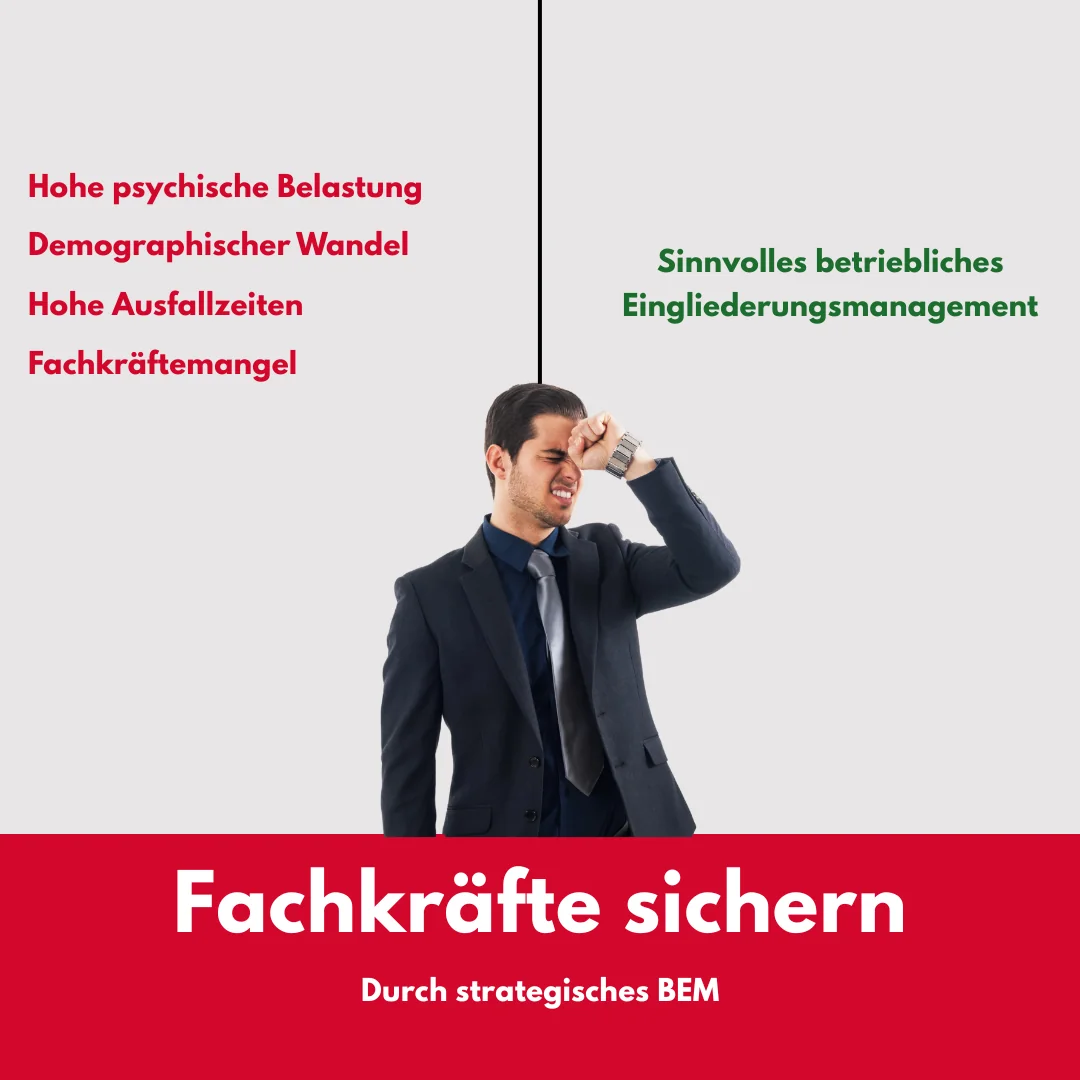When companies are sick
The world is changing – and with it the demands on employees. Due to the speed of digitalization, employees are confronted with an immense (psychological) workload. Statistics show that overload is not uncommon. 11.9% of absences in companies in 2023 were due to mental illnesses. This corresponds to an increase of 1.9 percentage points compared to the previous year. Compared to other types of illness, mental illnesses continue to be of particular importance: Since 2013, sick days due to mental illnesses have increased by 56.5% (AOK Absence Report 2024). The world of work is changing rapidly. Digitalization, constant availability, multitasking, and increasing pressure to perform are increasing the psychological stress of many employees.
However, these figures are not only an indication of the high workload of employees; they are also an extremely alarming signal for those who rely on qualified personnel. Combined with demographic change and the shortage of skilled workers, the increased number of sick days is turning into an employer's nightmare. A total of 1,243,510 positions were vacant in 2024. 487,029 of these could not have been filled through the labor market (IW Skilled Workers Database - IAB Job Analysis 2025).
In this reality, companies simply can no longer afford to "weed out" sick employees. From a human perspective—and also from a business perspective—new ways of dealing with illness and returning to work are needed.
The solution: A well-positioned BEM
A BEM case occurs when an employee is unable to work for more than 30 days (consecutively or repeatedly) within a 12-month period – regardless of the cause. BEM aims to maintain or restore work capacity and prevent a recurrence of illness. BEM is by no means a sanction for the employee, but rather a voluntary, confidential offer of support.
What might such a process look like in concrete terms? Let's take a look at an example:
A practical example: Mr. Schneider’s BEM case
1. Introduction of the BEM:
Mr. Schneider, a project manager at a medium-sized IT company, was repeatedly on sick leave for several months – a total of 36 days in twelve months. The human resources department informed him in writing about the offer of a BEM and invited him to a voluntary interview. Mr. Schneider accepted the offer.
2. Analysis of the initial situation:
In a confidential conversation with the BEM team (consisting of HR, his manager, and the company doctor), Mr. Schneider openly reported persistent exhaustion and concentration problems. Together, they identified the causes: overload due to constant project changes, unpredictable working hours, and constant availability.
3. Development of individual measures:
A package of measures is being put in place: Mr. Schneider will be given a defined area of responsibility, fixed availability times, and flexible home office days. In addition, stress management coaching will be offered.
4. Implementation of the measures:
The measures are agreed upon and implemented in a binding manner. The BEM team meets with Mr. Schneider at regular intervals to review the effectiveness of the changes and adjust them if necessary.
5. BEM completion:
After six months, Mr. Schneider is fully integrated back into his daily work routine. The measures are paying off: He is productive, satisfied, and motivated. In the final meeting, all participants agreed that the BEM was a complete success.
Conclusion: BEM as the key to healthy work and sustainable skilled workforce retention
Company integration management is far more than a legal requirement (Section 167, Paragraph 2 of the Social Code Book IX). It is an investment in health, motivation, and the retention of skilled workers. In times of rising absenteeism, growing psychological stress, and shrinking workforces, a professional, systematic company integration management system is no longer a "nice-to-have" – it is a key to company success.
Let's take your company integration management to the next level together. Contact us without obligation!

Phone: +49 221 340909-42
Mobile: +49 170 3718451
Susanne Dierdorf
Psychologist (M.Sc.),
Consultant
